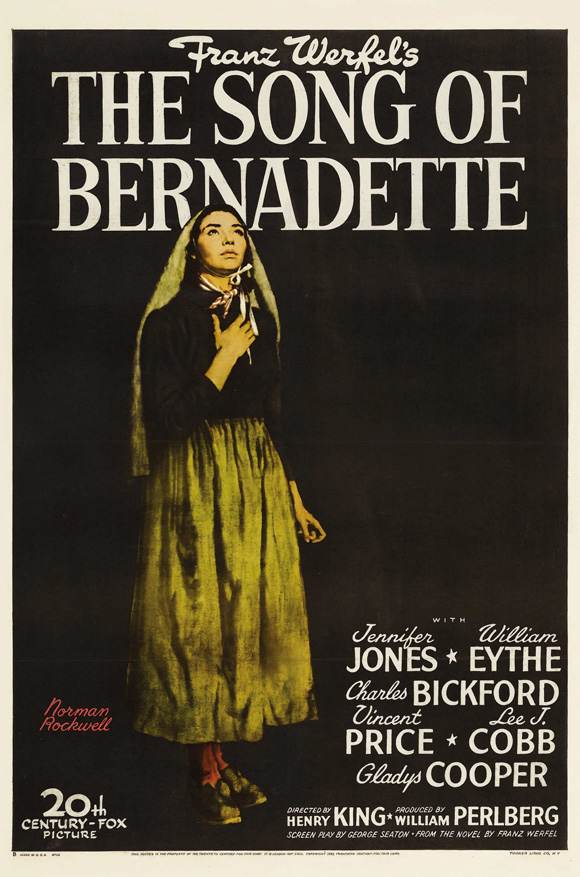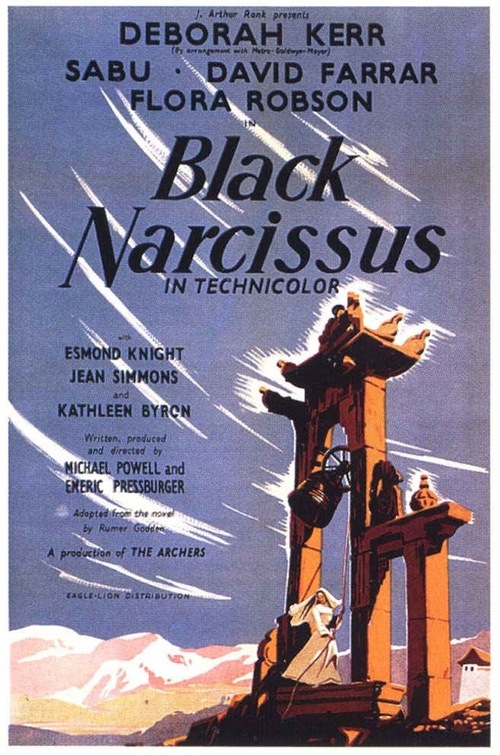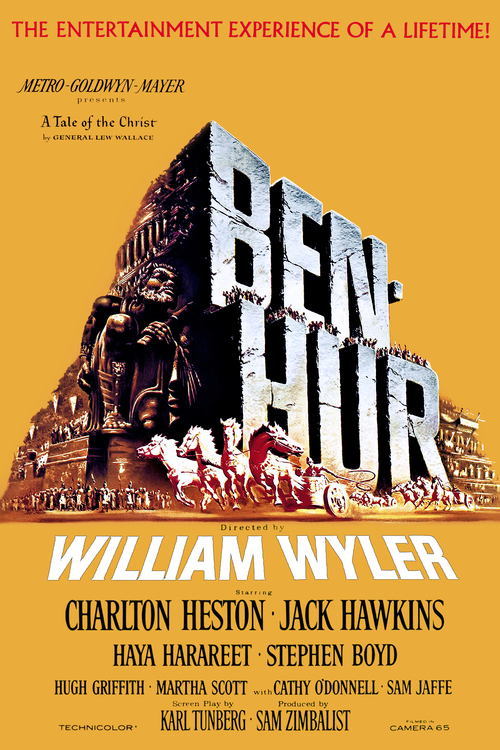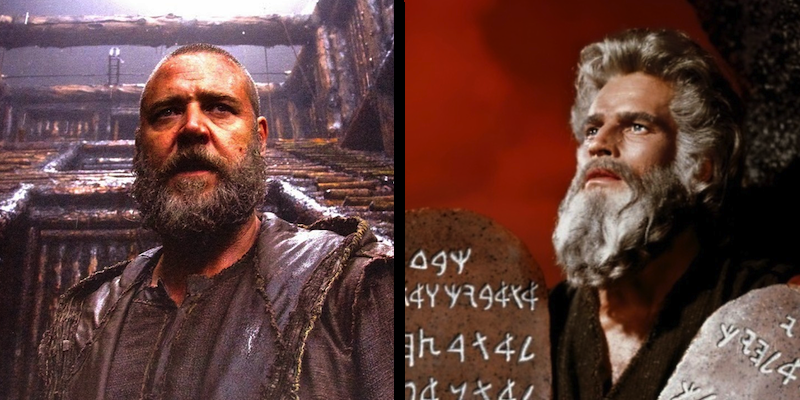 “Noah,” starring Russell Crowe and a Pentateuchal God punishing the wicked with about 45 minutes of world-destroying CGI, opens today. While you could go blow money on this floating mess of animalia, we recommend you skip it, and watch a better Biblical movie – “The 10 Commandments” (1956), directed by the King of Spectacle Films, Cecil B. DeMille.
“Noah,” starring Russell Crowe and a Pentateuchal God punishing the wicked with about 45 minutes of world-destroying CGI, opens today. While you could go blow money on this floating mess of animalia, we recommend you skip it, and watch a better Biblical movie – “The 10 Commandments” (1956), directed by the King of Spectacle Films, Cecil B. DeMille.
“Commandments” retells the Biblical tale of Moses, from his float down a river, to becoming a prince of Egypt, to his successful career as a prophet. It’s a film worthy of the record-breaking $13.5M budget it eventually received. It was to be DeMille’s magnum opus, and he treated it as such. When studio bean-counters complained about spiraling costs, DeMille asked if he should stop filming and make “The Five Commandments” instead.
The studio had no right to complain; when you hired DeMille, you knew what you were getting. He was Hollywood’s first “Hollywood” filmmaker, a celebrity with his trademark riding crop, bald head, and megaphone. He was also infamously anal retentive. While filming in Egypt, his pickiness got so bad that DeMille, the oldest working director at the time at 75 years old, had a heart attack while climbing a 100-foot ladder. He returned to the set two days later. Now that’s stubborn.
He wasn’t quite as stubborn about his cast. DeMille had originally planned on having Audrey Hepburn play Nefretiri, but consented to Anne Baxter when it was decided that Audrey was too “slender” (Hollywood parlance for flat-chested). But the entire cast is spot-on, from Vincent Price as the slave-driving (literally) Master Builder of Egypt to Edward G. Robinson as the Israelite-goading, Moses-doubting “weasel-eyed” snitch, Dathan. And you’ll never forget Charlton Heston’s slow-drip delivery of Moses’s demand to the new Pharaoh: “Let my people go!”

Though DeMille could be supportive, even encouraging to his stars, he made life impossible for his thousands of extras. In the orgy scene, in which the Israelites (who apparently had the attention span of excited kittens) go crazy with liquor and dancing while their prophet goes off to talk to God, was a particularly difficult scene. It took three long weeks to film, and you can see why – it’s pure chaos. Women sacrificed to a golden cow god, drunken fire-dancing, and even, as the stern narrator intones, “adultery and lasciviousness.” How did an inveterate perfectionist like DeMille capture pure chaos?
Painfully, it turns out. In one story, DeMille was giving long-winded directions to the extras through his megaphone, when he overheard a young female extra chatting up a friend. When DeMille asked what could be so important, the woman replied, “I was just saying to my friend, ‘I wonder when that bald-headed son of a bitch will call ‘Lunch.’” DeMille paused, aimed his megaphone at her, and yelled, “Lunch!”
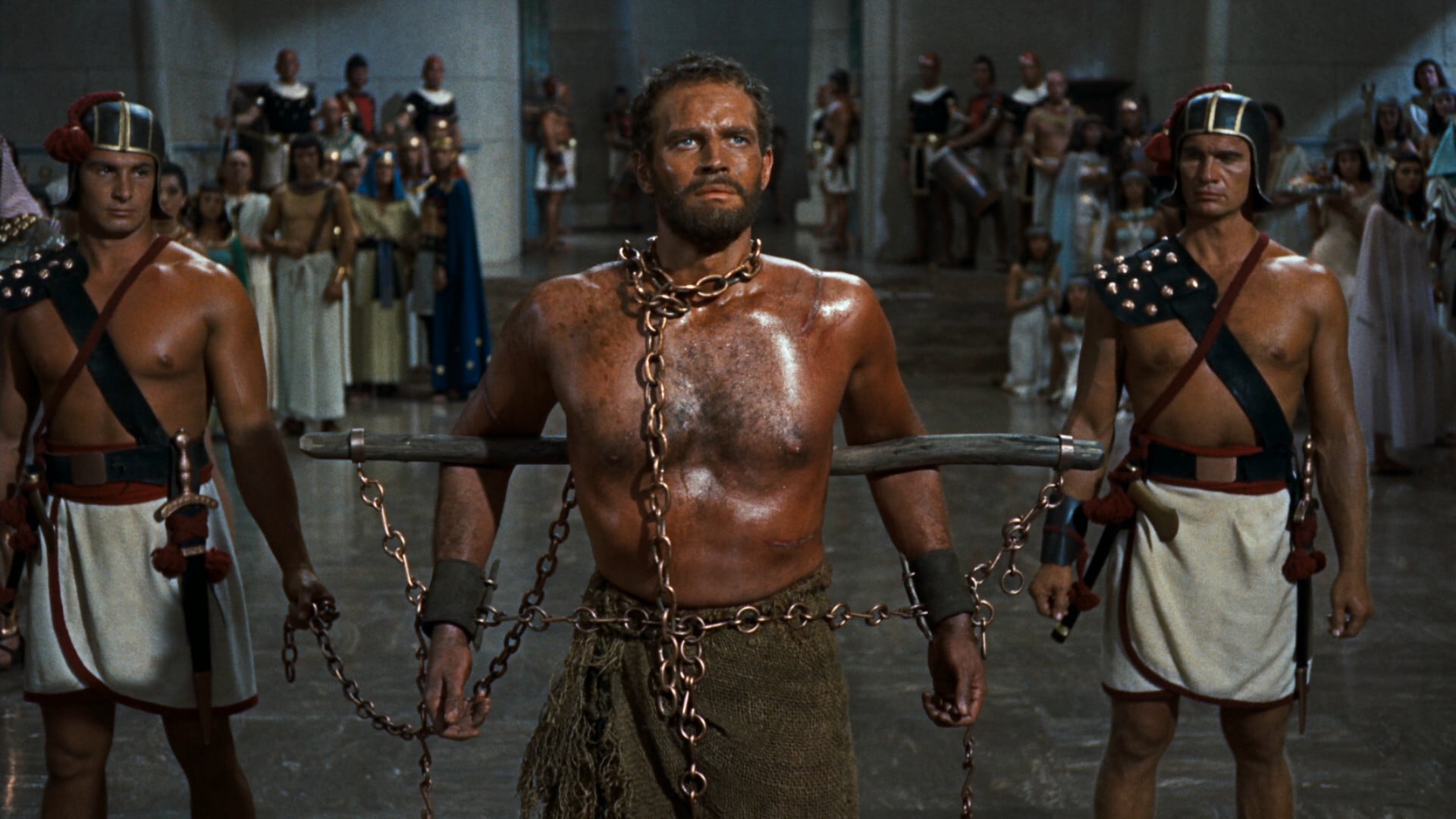
He had the ego to helm a project of that size, as well as the talent, will, and meticulous nature to turn it into one of the biggest successes in Hollywood history. Looking at the sheer scope of “Commandments,” DeMille’s fastidiousness was exactly what the film needed to triumph.
The scenes of the Israelites walking out of Egypt required thousands and thousands of extras pushing dozens of hand-made carts and palanquins, guiding about 15,000 geese, horses, oxen, (and one particularly recalcitrant mule) out of the biggest and most expensive movie set made to date. The detailed costumes; the beautiful, sprawling sets; hundreds and hundred of assistants; designers, caterers, and crew; all to bring one story to life. Just check Moses’s epic parting the seas (in the years before CGI!) below:
It took all of DeMille’s will to wrangle a project of this magnitude, but it was his genius that opened the door to the film’s legitimacy. When the great director approached the president of Egypt, Gamel Abdel Nasser, about filming on-location in Egypt, Nasser not only approved the project, but gave DeMille use of his army for months of training and filming. Why? “We grew up on your movie, ‘The Crusades,’” Nasser told DeMille. “We saw how you treated our religion. You can do anything in this country.”
That feeling of purpose, place, and substance; that overwhelming sense of scope; these are elements that CGI can never replicate. It’s this ineffable quality that is just one of many things missing from Aronofsky’s production, and why you should watch DeMille’s “The 10 Commandments” instead of “Noah” this weekend.


